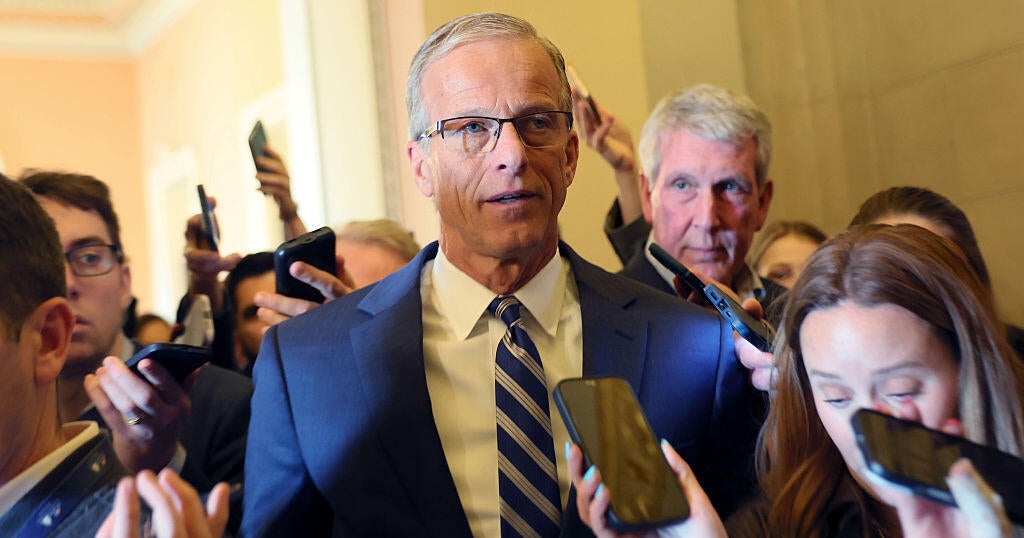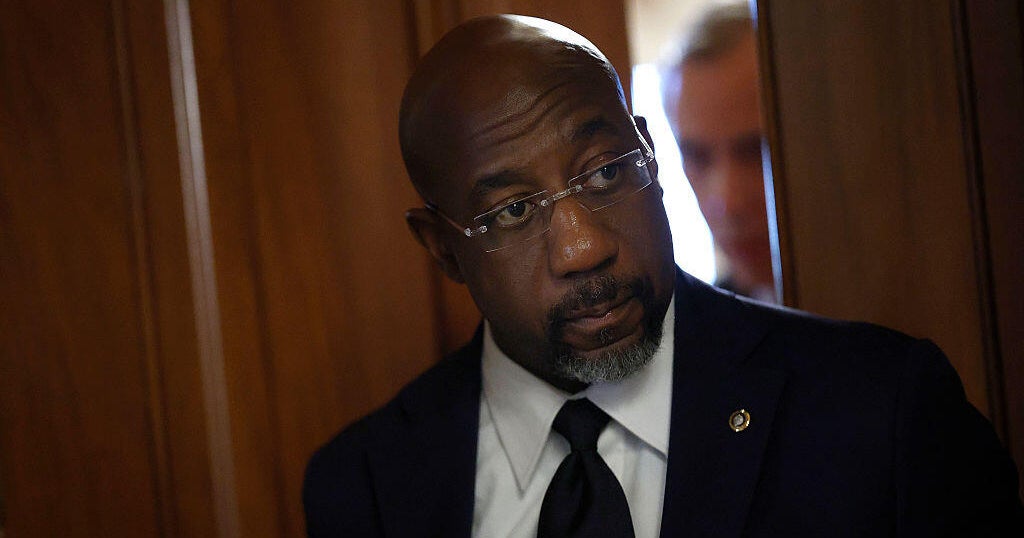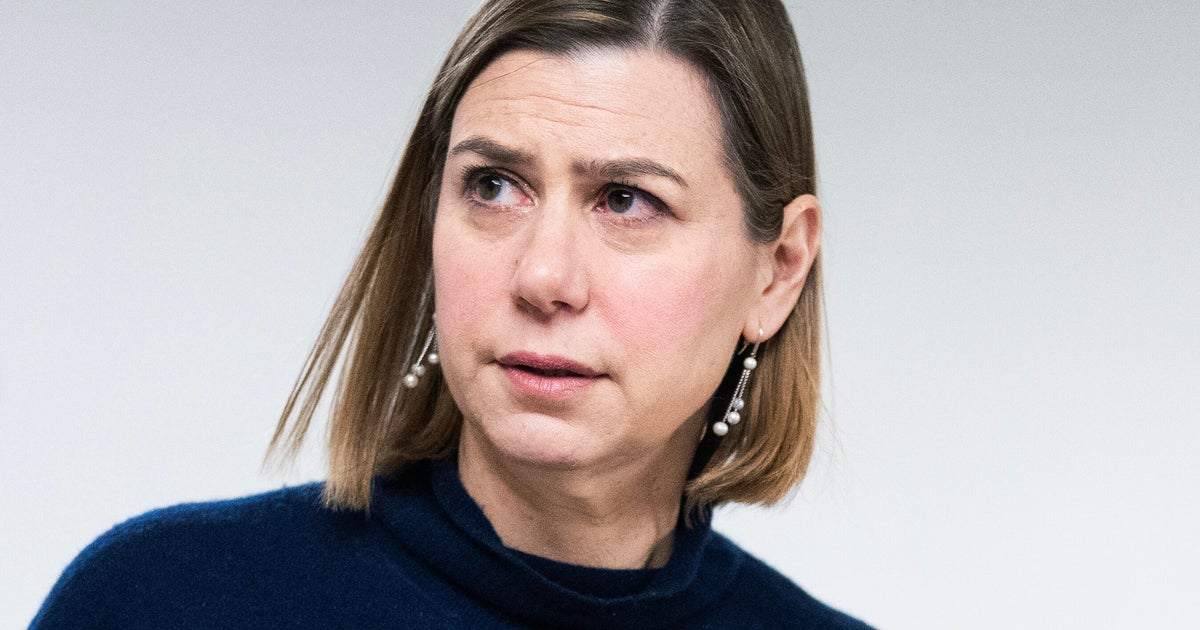Former DHS chief Chad Wolf says Capitol Police initially rejected help on January 6
U.S. Capitol Police initially rejected help from the Department of Homeland Security during the assault on the Capitol on January 6, according to former acting DHS Secretary Chad Wolf.
Wolf says that he offered to send DHS law enforcement backup just after 2 p.m. that day, after a violent mob of Trump supporters had begun to infiltrate the Capitol. That initial offer was rebuffed by Capitol Police, Wolf told CBS News chief Washington correspondent Major Garrett.
"Capitol Police turned us down, initially. And they said 'No, we've got it under control,'" Wolf said in an interview for "The Takeout" podcast this week. DHS eventually dispatched about 100 Secret Service personnel to help quell the insurrection. "I'm not sure that there was a lot of clarity that was coming out of Capitol Police at that time."
Wolf criticized the Capitol Police response to the attack, suggesting that leadership should have been more prepared, given the large number of protesters expected in Washington on January 6.
"You're gonna have 35,000 people show up in D.C., you have to plan for the worst. That is your job as law enforcement and a first responder is you plan for the worst. We did that at DHS," Wolf told Garrett. "I think the Capitol Police are having to explain why they did not plan for the very worst."
Wolf says he never saw the intelligence assessment issued by the Norfolk, Virginia, FBI field office on the eve of the attack — it notified law enforcement of an anonymous social media thread threatening war at the U.S. Capitol. The assessment was forwarded by email to a lieutenant in the House's protective and intelligence operations but went no further up the chain of command. Still, Wolf doesn't believe that the events of January 6 were an "intelligence failure" because law enforcement agencies were aware of the potential threat.
"I think what is most critical that most folks are taking a look at is, why didn't we have more intelligence saying that they were going to storm the Capitol, that they were going to try to break through the barriers. You always want that type of granular intelligence for any type of law enforcement operation. We'd love to have that, and if it was out there to that level of degree and clarity and credibility, and that wasn't shared, I would say 'yes, that is a failure.' That's not what occurred here," Wolf said. "There was a lot of intelligence there."
"It was a lack of execution of a plan, if one was in place," he said.
Congress has held hearings on the security and planning failures that precipitated the insurrection, which resulted in the deaths of five people. Wolf told Garrett he's willing to testify before Congress, but hasn't yet been asked to do so. His main concern is that DHS determine "how do we provide information to our state and local partners."
"I think the general information that was being shared was just a general heightened threat environment and that 'you need to scale up your protective measures accordingly.' And we certainly did that at DHS, and I think others will have to question and answer why they didn't do that as well," Wolf said.
DHS "immediately established a crisis action team to monitor the situation" as the events of January 6 unfolded," Melissa Smislova, the acting undersecretary in the Office of Intelligence and Analysis (I&A) at DHS, told lawmakers this week.
But Capitol Police also faced other hurdles in securing the Capitol. Major General William Walker, the commanding general of the D.C. National Guard, testified before Congress Wednesday that it took Pentagon leaders more than three hours to approve a request for National Guard troops to assist Capitol Police officers overwhelmed by the violent mob. "The word that I kept hearing was the 'optics' of it," Walker said. "There was some concern that it could inflame the protesters."
Wolf says he has no insight into the delay in deploying troops; he told Garrett he wasn't involved in those discussions.
Wolf also weighed in on the 2020 election, calling it "free and fair," which former President Trump has still refused to acknowledge. However, he acknowledged that DHS does not address voter fraud. When asked if there were any issues with the election from the perspective of the DHS, Wolf said that "from a cyber and foreign influence standpoint, we saw very little to almost none."
Wolf also criticized the executive orders and actions the Biden administration had taken with regard to immigration, including rolling back some Trump administration policies.
"A lot of these actions are actually very, very dangerous. Because what they are doing, taken together, is they are fueling the crisis that we see on the border today," Wolf said. "They're incentivizing vulnerable populations to continue to come to that border."
For more of Major's conversation with Wolf, download "The Takeout" podcast on Art19, iTunes, GooglePlay, Spotify and Stitcher. New episodes are available every Friday morning. Also, you can watch "The Takeout" on CBSN Friday at 5pm, 9pm, and 12am ET and Saturday at 1pm, 9pm, and 12am ET. For a full archive of "The Takeout" episodes, visit www.takeoutpodcast.com. And you can listen to "The Takeout" on select CBS News Radio affiliates (check your local listings).
Producers: Arden Farhi, Jamie Benson, Sara Cook and Eleanor Watson
CBSN Production: Eric Soussanin, Julia Boccagno and Grace Segers
Show email: TakeoutPodcast@cbsnews.com
Twitter: @TakeoutPodcast
Instagram: @TakeoutPodcast
Facebook: Facebook.com/TakeoutPodcast



